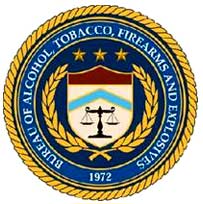ATF Acting Director Announces Demand Letters for Multiple Sales of Specific Long Guns in Four Border States
By Ken Melson, the Acting Director of ATF.

Washington, DC –-(Ammoland.com)- A recent initiative by the Bureau of Alcohol, Tobacco, Firearms and Explosives has caught the attention of national media outlets.
I wanted to make sure everyone heard from me about this law enforcement initiative so there isn’t any confusion.
Recently, ATF announced through the Federal Register our intent to initiate a new Demand Letter requiring the reporting of multiple sales of certain long guns by Federal Firearms Licensees, known as FFLs, in the four Southwest Border States. We took this step as a way to help gain actionable law enforcement intelligence which we believe will help reduce criminal firearms trafficking along the Southwest border.
Before we can actually issue the Demand Letter we must receive approval from the Office of Management and Budget for purposes of the paperwork reduction act. We expect to receive that approval in early January, 2011.
As many of you already know, the goals of ATF’s Southwest border firearms trafficking strategy are:
- To prevent violent crime;
- Ensure the safety of the communities and law enforcement situated along the Southwest Border;
- And to disrupt and dismantle the firearms trafficking networks responsible for the diversion of firearms from lawful commerce into the hands of the Mexican Drug Trafficking Organizations (DTOs)
Since 2006, there has been a significant increase in drug and firearms-related violence in Mexico and along our Southwest border. In response to this increased violence, ATF has deployed focused resources nationally to prevent the firearms trafficking along the Southwest Border and into Mexico.
According to ATF trace data, investigative experience, and Mexican law enforcement officials, a large number of rifles are being used in violent crimes in Mexico and along the border. Our new Demand Letter will implement a limited reporting of multiple sales of certain long guns that functions similarly to the current practice of reporting on the multiple sales of handguns. Currently, all FFLs in the country are required to submit a report of multiple sales to the National Tracing Center when an FFL sells two or more handguns to the same purchaser within five consecutive business days.
The proposed Demand Letter, which is narrowly circumscribed to meet our objectives, will apply a similar reporting requirement to certain long guns, but with these distinct differences:
First, the reporting requirement will apply only to FFLs doing business in Texas, New Mexico, Arizona and California, which are major source states for crime guns seized in Mexico and traced to federal firearms licensees.
Secondly, the reporting requirement applies only to those rifles having all of the following characteristics:
- A semi-automatic action;
- A caliber greater than .22; and
- The ability to accept a detachable magazine.
These specific characteristics subject a very narrow group of long guns that have been identified by ATF and the Government of Mexico as being involved in violent crimes in Mexico to the reporting requirement.
This reporting requirement would apply to the disposition of all rifles in the inventory of the FFLs exhibiting these characteristics, both new and used.
Third, we propose to implement this initiative as a pilot project for a period of one year.
Taken together, limiting the geographic scope, impacting a limited number of licensees, affecting a specific group of rifles, and limiting the duration of this reporting requirement, form a tailored, discreet, responsible and proactive response to a significant law enforcement issue.
Let me be absolutely clear. The purpose of requiring FFLs to report the specified multiple long gun sales in these four source states is to identify criminal firearms traffickers, not to prevent the full and free exercise of our Second Amendment rights, or to encumber the FFLs with burdensome paperwork.
These reports will give ATF real-time leads for the investigation of gun trafficking. ATF’s experience in these source states proves that multiple purchases of the described rifles are strong indicators of firearms trafficking to Mexico. By obtaining information about these multiple sales, ATF increases the likelihood of uncovering and disrupting trafficking schemes before the firearms make their way into Mexico.
I know that FFLs are good citizens who share ATF’s interest and commitment in keeping guns out of criminal hands. Working together we can do that without infringing on the rights of law abiding Americans.
